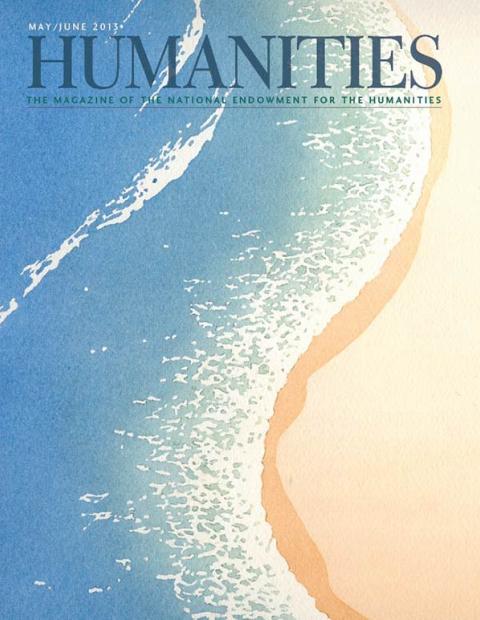It’s been an exciting couple of months at NEH. We celebrated Created Equal, an initiative to offer, free of charge, DVD sets of four NEH-supported films about civil rights history to five hundred communities around the country. The festivities included a special reprint of HUMANITIES magazine articles about the films—The Abolitionists, Slavery by Another Name, The Loving Story, and Freedom Riders—all of which can be found at neh.gov/humanities.
The Jefferson Lecture also came and went, throwing the magazine’s publication schedule out of whack in order for us to report and comment on one of the great filmmakers of our time, Martin Scorsese.
Once the flashbulbs stopped popping, we returned to the comfortable routine of looking for great stories in the records of NEH grantmaking. I personally traveled to Chestertown, Maryland, to meet Adam Goodheart, author of 1861: The Civil War Awakening and director of the C.V. Starr Center for the Study of American Experience at Washington College. In this latter role he is overseeing a small but distinguished program devoted to the art of history-writing.
You can lose hours in Chestertown, walking the historic streets or watching the wind clap against the Chester River, immersed in what John R. Gillis calls “the human shore,” that boundary between land and water where men and women sun themselves and daydream. In this issue, Gillis explores how science and history have followed literature and art down the beach and into the surf to recover our sense of nature, our sense of the sublime, and even the origins of life.
The sea was not always a major point of reference for landlubbers. Ralph Waldo Emerson, Gillis points out, said the sea was “an acquired taste, like that for tomatoes and olives.” Danny Heitman has acquired a taste for Emerson, which he uses to discuss how this writer, read at an impressionable moment, can liberate young writers from the stultifying suspicion that everything worth thinking and saying has already been thought and said.
Lady Bird Johnson knew that, for the bold of spirit, there were always new adventures to be had. As Meredith Hindley recounts, in 1964, Johnson became the first first lady to campaign for a president’s reelection without the president at her side. On a four-day rail journey into the Deep South, Lady Bird invited Democrats and Republicans alike to join her bandwagon. Only the Goldwaterites had other ideas.
“You campaign in poetry. You govern in prose,” Mario Cuomo once said, leaving aside questions of genre that might help us classify the tale of a sitting president trying to strong-arm a Supreme Court justice while prosecuting his former vice president for treason. NEH fellow R. Kent Newmyer ushers us into the great political theater of Aaron Burr ’s treason trial.

